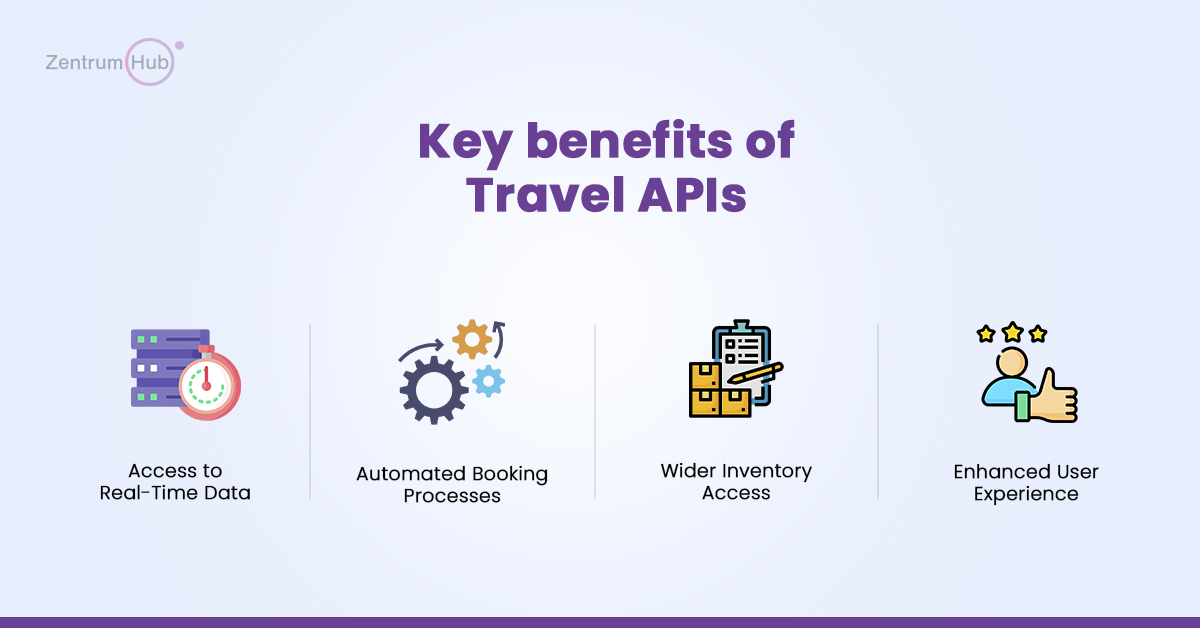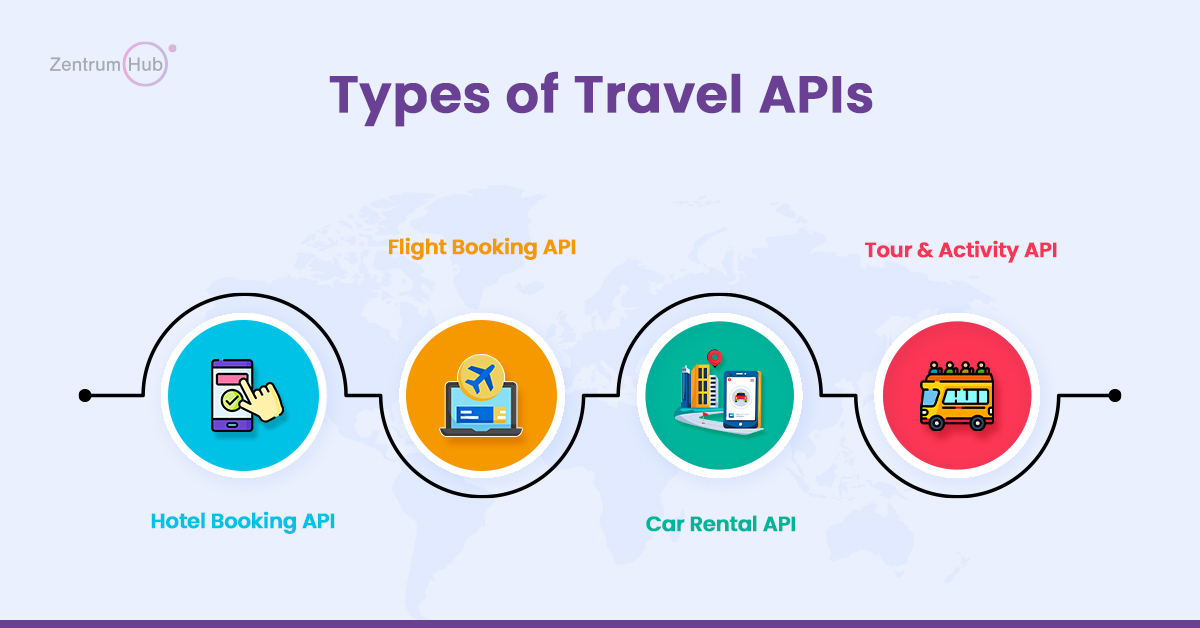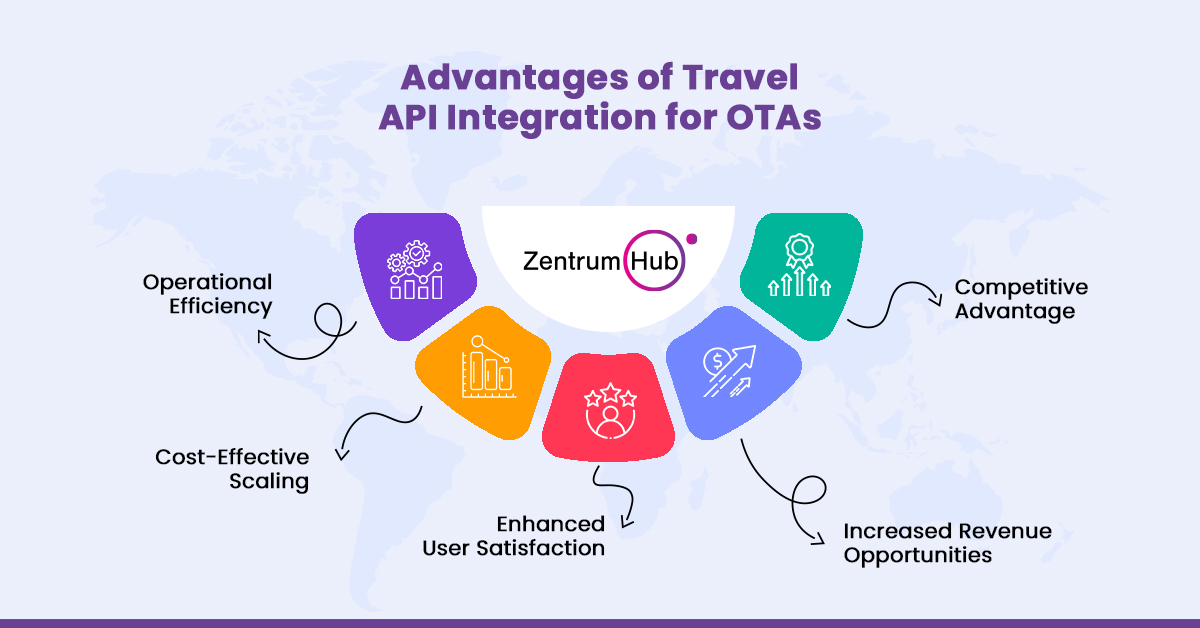Online Travel Agencies (OTAs) have revolutionized the way travelers book flights, accommodations, and various services related to travel.
Instead of requiring customers to navigate multiple sites, OTAs bring everything into a single, user-friendly platform.
At the heart of this convenience lies the power of Travel APIs. When integrated various Travel APIs, OTAs can provide real-time information on flight availability, hotel options, rental cars, and more, ensuring seamless and efficient booking experiences for travelers.
This blog explores the importance of Travel API integration for OTAs, focusing on the key advantages and types of APIs that contribute to OTAs’ success.

A Travel API acts as a bridge between the OTA and various travel service providers, allowing for a two-way data exchange. Through APIs, OTAs can access a vast database of flights, hotels, and other services. Travel APIs pull real-time data from multiple suppliers and display this information on the OTA’s interface, making it easy for customers to find and book their preferred services.
Key benefits of Travel APIs for OTAs include:

1. Hotel Booking API
Hotel Booking APIs are essential for OTAs as they enable seamless connections to thousands of hotels worldwide. By integrating a hotel booking API, OTAs offer users access to various hotel options based on location, budget, amenities, and availability.
Key Benefits:
For OTAs, hotel booking APIs also eliminate the need for individual partnerships with hotels. Instead, they can connect to a single API and access a broader inventory, saving time and expanding reach.
2. Flight Booking API
Another critical component for OTAs is the Flight Booking API. This API enables OTAs to connect with airlines worldwide, providing travelers with up-to-date flight schedules, availability, and pricing. This allows OTAs to compete with traditional airline booking websites, offering customers the same information in one consolidated platform.
Key Benefits:
With a flight booking API, OTAs create a more competitive platform that serves the varied needs of travelers by enabling real-time comparisons across airlines.
3. Car Rental API
For travelers who require ground transportation, OTAs can utilize a Car Rental API to provide rental options from companies worldwide. Integrating this API allows OTAs to enhance their service offerings, enabling users to book cars alongside flights and hotels.
Key Benefits:
Car rental APIs help OTAs build a well-rounded platform by catering to diverse transportation needs, ensuring users have everything they need to navigate their destinations with ease.
4. Tour and Activity API
An often-overlooked yet essential API for OTAs is the Tour and Activity API. This API connects OTAs to local tour operators, enabling users to book activities such as city tours, excursions, or adventure sports.
Key Benefits:
By offering tours and activities alongside accommodations and transportation, OTAs give customers a full-service travel experience, making them the go-to solution for all travel-related bookings.

Integrating travel APIs provides OTAs with an edge in the competitive travel industry. The most significant benefits include:
1. Improved Operational Efficiency
By automating the booking process, Travel APIs reduce the need for manual operations. This leads to reduced operational costs, fewer errors, and faster processing times. Automated bookings and payments also allow OTAs to scale their business without requiring significant investments in customer support or back-end staff.
2. Cost-Effective Scaling
Through Travel API integration, OTAs gain access to multiple suppliers without having to maintain direct relationships with each one. They can scale up their inventory at a fraction of the cost, reaching a broader audience and increasing their potential revenue.
3. Enhanced User Satisfaction
Providing real-time information and a seamless booking process is critical to retaining customers. When travelers can effortlessly search, compare, and book travel services, they are more likely to return to the platform. APIs ensure OTAs have accurate and up-to-date information, enhancing user satisfaction and loyalty.
4. Increased Revenue Opportunities
Travel APIs enable OTAs to introduce various ancillary services—such as flight add-ons, extra baggage options, or car rentals—which can boost revenue. Cross-selling and upselling become easier with the flexibility that APIs provide, allowing OTAs to recommend complementary services during the booking process.
5. Competitive Advantage
In a crowded market, offering a comprehensive range of services and real-time data is a major competitive advantage. OTAs that leverage travel APIs can keep up with industry changes and offer personalized solutions that make the platform more attractive to travelers.
The process of integrating travel APIs into an OTA platform involves a few key steps:
Travel APIs are indispensable for OTAs, giving them access to real-time data, enhanced functionality, and a competitive edge in the marketplace.
From flights and hotels to car rentals and activities, API integration allows OTAs to offer a comprehensive travel planning experience.
As technology evolves, OTAs that leverage advanced API features will be better positioned to meet traveler demands, ensuring future growth and sustained customer satisfaction.
We use cookies to ensure that we give you the best experience on our website. If you continue to use this site we will assume that you are happy with it.
